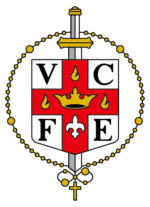The Thomistic Studies are several days dedicated to the study of a particular topic in the thought of St Thomas Aquinas. The topics rotate in a cycle of 7 years and this year, the topic was on Freedom, which is one of the most important, if not the most important aspect of man that makes him to be man, and thus have responsibility over his actions and thus be able to merit.
Our studies started with the solemn singing of the Veni Creator to invoke the help of the Holy Spirit on all our deliberations. The papers were presented in Chinese as well as English, with a simultaneous translation so that all the members of our community would be able to fully participate and benefit from these days of study.
The sections started with the historical survey showing the evolution of Freedom in the thought of various philosophers throughout history, culminating in St. Thomas Aquinas and then how the philosophers after him brought a corruption and obscuring of the true doctrine of freedom resulting in various caricatures and formalist tendencies creeping into philosophical thought.
The doctrinal section consisted of several papers through which the true nature of freedom, which resides in the will, was revealed. This required the exposition of the falsity of the account of freedom that prioritizes the intellect over the will.
The work of renowned Thomist Fr. Cornelio Fabro guided us in our reflections on freedom as a participated creativity, in which man, as a causa sui of his own actions, participates in the creativity of God and creates himself, in a sense, by his own choices and especially that of his existential election of the last end.
The theological section followed, in which the implication of freedom to various aspects such as our religious vows were exposed. Under the guidance of the Fathers who formed the panel during the presentation of the papers, the discussions were brought to a fruitful and orderly conclusion.
The days of study, attended by the novices, seminarians, and IVE Fathers and the SSVM sisters ended with the celebration of Holy Mass. We thank God for the gift of St. Thomas Aquinas, the Universal Doctor of the Church, for illumining the Church with a sure guide and with a perennial philosophy which is always valid.

Leave A Comment